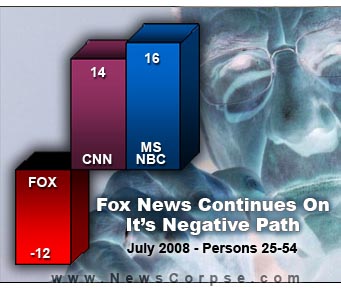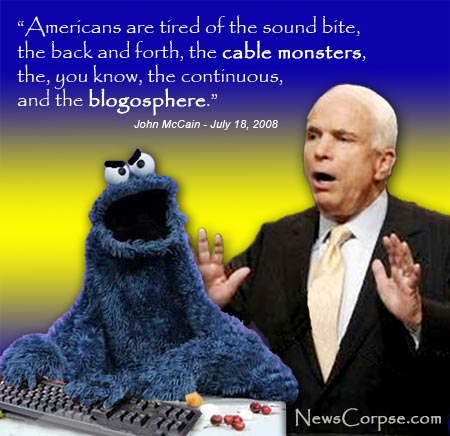 Last month John McCain said that Americans are tired of the Internet. It’s highly unlikely that he was actually speaking for all Americans, or even anything more than a small brood of Luddites. It is more likely that he himself is tired of the Internet, or perhaps just tired, period. He has never been particularly fond of it, even as he chaired the Senate committee responsible for regulating it.
Last month John McCain said that Americans are tired of the Internet. It’s highly unlikely that he was actually speaking for all Americans, or even anything more than a small brood of Luddites. It is more likely that he himself is tired of the Internet, or perhaps just tired, period. He has never been particularly fond of it, even as he chaired the Senate committee responsible for regulating it.
Amanda Terkel has authored a pretty comprehensive review of McCain’s tech resume. Her article reveals a man who is both uncomfortable with technological progress and beholden to the big corporate interests who seek to dominate the industry. McCain’s pronouncements on the subject, like the one last month, are laughable. He has confessed that he is “an illiterate who has to rely on my wife for all of the assistance that I can get,” and that he “never felt the particular need to e-mail.”
Terkel points out that the United States has fallen behind most of the world with regard to broadband policy. Our failure to be competitive in this arena will cost us the loss of millions of potential new jobs. It will hamstring our children. And it will insure that we run with the back of the pack in opportunities for business growth.
McCain has led the way to the rear by opposing legislation that would keep the Internet open (Network Neutrality). Plus he has promoted the sort of deregulation that has permitted media companies to consolidate so extensively that there are now only a handful of giant players left. McCain advanced this anti-competitive agenda while claiming to be free of conflicts or personal motive. Unfortunately, Terkel proves that that isn’t the truth:
“In 1998 and 1999, McCain wrote at least 15 letters to the FCC, urging members to take action on issues that had potentially major consequences for his campaign donors. For example, McCain wrote two letters in April and May 1999, asking the commission to make a decision on a $62 billion pending merger between telephone companies Ameritech and SBC Communications. The merger went through later that year. A few weeks before the April letter, Richard Notebaert, the head of Ameritech, co-hosted a fundraiser for McCain. He took in approximately $50,000. Just before the May letter, SBC and Ameritech officials contributed or solicited about $120,000 in donations for McCain’s campaign.”
“The current campaign cycle is also shaping up to be lucrative. U.S. Telecom Association president and CEO Walter B. McCormick Jr., Sprint CEO Daniel R. Hesse, and Verizon chairman and CEO Ivan G. Seidenberg have each raised between $50,000 and $100,000 for McCain’s campaign. AT&T executive vice president for federal relations Timothy McKone has raised at least $500,000.”
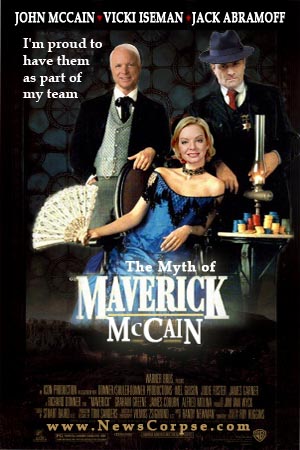 McCain’s association with lobbyists is well documented, if not well reported by the media. He was embroiled in his own scandal some years ago surrounding the corrupt banker Charles Keating. Next week he is attending a fundraiser hosted by Ralph Reed, a prolific lobbyist and an associate of convicted scammer Jack Abramoff. And in this week of tabloid revelations about John Edwards and his mistress, it should be noted that McCain also had speculation swirling about his relationship with telecom lobbyist Vicki Iseman. Unlike the bulldogging National Enquirer, the New York Times dropped the Iseman story after getting yapped at by angry Republicans. But the more salacious elements of the Iseman affair are not really that important. What is most relevant is that she is another lobbyist for closing off the Internet to everyone but her wealthy multinational clients, and that she was indisputably chummy with McCain. Curiously, she has since vanished from the face of earth. She has been so well hidden that even milk cartons don’t have a picture of her. Has the McCain camp shuttled her off to Dick Cheney’s fabled “Undisclosed Location?”
McCain’s association with lobbyists is well documented, if not well reported by the media. He was embroiled in his own scandal some years ago surrounding the corrupt banker Charles Keating. Next week he is attending a fundraiser hosted by Ralph Reed, a prolific lobbyist and an associate of convicted scammer Jack Abramoff. And in this week of tabloid revelations about John Edwards and his mistress, it should be noted that McCain also had speculation swirling about his relationship with telecom lobbyist Vicki Iseman. Unlike the bulldogging National Enquirer, the New York Times dropped the Iseman story after getting yapped at by angry Republicans. But the more salacious elements of the Iseman affair are not really that important. What is most relevant is that she is another lobbyist for closing off the Internet to everyone but her wealthy multinational clients, and that she was indisputably chummy with McCain. Curiously, she has since vanished from the face of earth. She has been so well hidden that even milk cartons don’t have a picture of her. Has the McCain camp shuttled her off to Dick Cheney’s fabled “Undisclosed Location?”
Terkel’s article, along with the other evidence cited here, should cause anyone who values the Internet to be suspicious of McCain’s plans. He is not merely ignorant, he is aggressively antagonistic toward an open, accessible, World Wide Web. He must not be given an authority over it.


 The national embarrassment that is our president once again raises its reddened face. In photographs
The national embarrassment that is our president once again raises its reddened face. In photographs 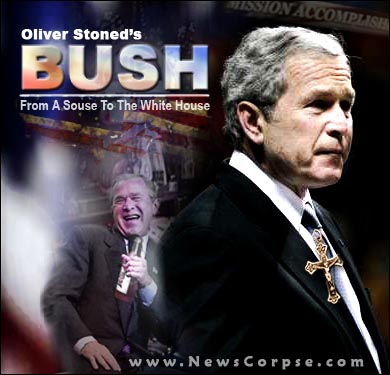

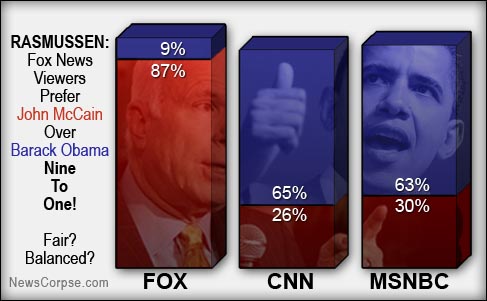
 And if it isn’t enough that Fox News is avowedly opposed to the goals of Democrats and progressives, then the fact that viewers are turning away from Fox while the market is growing should convince them of what the rest of the country has already decided – that Fox is not a news network, it is a tool for right-wing propaganda and disinformation. That’s why their audience share is shrinking. And that’s why we must not grant them the credibility our association implies. Just stay the HELL off of Fox News!
And if it isn’t enough that Fox News is avowedly opposed to the goals of Democrats and progressives, then the fact that viewers are turning away from Fox while the market is growing should convince them of what the rest of the country has already decided – that Fox is not a news network, it is a tool for right-wing propaganda and disinformation. That’s why their audience share is shrinking. And that’s why we must not grant them the credibility our association implies. Just stay the HELL off of Fox News!

